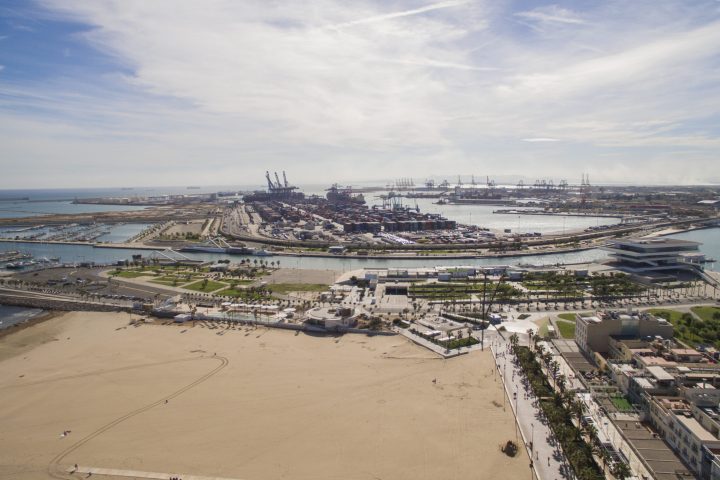The Port Authority of Valencia (PAV) will continue to invest heavily in infrastructural and digital solutions for its intermodal offering at the port to accommodate surging cargo volumes.
Investments including a new intermodal terminal and an automated customs release Optical Character Recognition (OCR) system for rail containers are one of a number of intermodal investments Valencia will be or is currently making, the port told PTI.
Lorena Sáez, Project Manager at Fundación Valenciaport, an innovation centre based at Port Valencia, said several actions are being carried out by PAV to integrate the ports of Valencia and nearby bulk and ro-ro Port of Sagunto into national and European infrastructure networks.
“[We are] enhancing the traffic along the Mediterranean Corridor and contributing to make these ports efficient with sustainable entry and exit points fully integrated in the Trans-European Transport Network (TEN-T),” Sáez said.
“All these actions will contribute to the competitiveness of the industrial cluster of the ports of Valencia and Sagunto by improving the accessibility and connectivity of Valencia and the other regions integrated in the natural hinterland of these ports,” Sáez noted.
Valenciaport overcame major challenges brought about by the Covid-19 pandemic to handle over 5.4 million containers in 2020.
The Port of Valencia cut its carbon emissions by 30% between 2008 and 2019 despite this surge in cargo throughput. Many in industry have highlighted investment in intermodal freight solutions as opposed to trucking to reduce port carbon consumption.
The port is embarking on the construction of new rail freight access to the Port of Sagunto to connect the port to the Spanish railway network and to the Mediterranean Corridor.
The Port will also contribute €15 million ($18 million) to extend Valencia Fuente San Luis, a logistics and intermodal terminal connected to PAV.
A new container terminal will be constructed in the northern expansion of the Port of Valencia with a public-private investment by Terminal Investment Limited (TIL), a subsidiary of the MSC group.
Sáez outlined that one of the most important commitments of TIL for the North terminal is the construction and operation of a rail terminal.
“The project includes the forecast of moving 300,000 TEU a year and an average of ten trains per day in this intermodal facility,” she added.
Digital still a focus
In spite of the swathes of infrastructural investments, Sáez said the boost in trains using the port means digital upgrades are a must.
“Regarding the investments in digital solutions, the increase of trains to move freight from/to the ports managed by the Port Authority of Valencia requires upgrading several information systems enabling efficient rail-port operations and efficient information exchange between the involved stakeholders,” Sáez said.
PAV has adopted the Port Community System of Valenciaport (ValenciaportPCS) to rail transport operations.
The adoption allows agents involved to generate and manage transport orders and cargo acceptance and delivery orders required to transport these goods within the port facilities managed by Valenciaport, for example.
Sáez told PTI the port is implementing a paperless customs release OCR system at the port, for the more seamless and eco-friendly management of rail container traffic.
The PAV will also digitalise rail freight information exchanged with ADIF and other agents involved for planning and managing rail operations, using the European TAF TSI standard, which sets the functional and technical standards for exchanging harmonised information between infrastructure managers, railway undertakings and other stakeholders.
These actions are being developed within the CONNECT VALENCIAPORT and IRAIL projects, co-funded by the European Union through the Connecting Europe Facility (CEF) programme.



